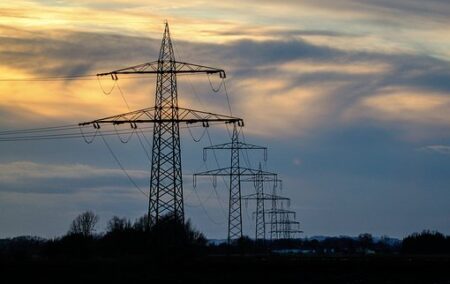South Africa’s state-owned enterprises (SOEs) are cash-hungry vampires sucking the nutrients out of already over-taxed South African value-adders.
Their thirst is intensified by the taste of further bailouts, which are almost blindly guaranteed by the national Treasury.
On 7 October, the SABC received a bailout of R2.1 billion from Treasury.
This is R1.1 billion short of the R3.2 billion the SABC was promised. This bailout is meant to help with the broadcaster’s turnaround strategy, aimed at improving the dreadful financial state that the broadcaster has been in since it experienced a loss of R482 million during the 2018/2019 financial year. It should be noted that this is the second turnaround strategy that the SABC has proposed and it won’t be a surprise if there is a third.
Unfortunately, bailouts have become the norm for SOEs in South Africa, with SAA receiving a total of R39.3 billion over the past two decades, and Eskom becoming the biggest Dracula of them all, requiring bailouts of R230 billion over the next few years.
The question is this: should there even be bailouts when SOEs squander their way to penury? Officially, this question does not seem to get much traction. Rather, the expectation that yet another bailout will be given is always met.
How is it possible that SOEs continue to fail and continually require bailouts from the national Treasury?
Is it just a personnel issue, so that if one or two bad apples are fired (read Hlaudi Motsoneng), everything will right itself? Or is there a deeper reason why SOEs fail to cover their own cost through earnings?
A bailout is either financed through tax revenue or through the government increasing the national debt level via the sale of government bonds. It is ultimately the taxpayer who is forced to pay for these bailouts.
For companies to become profitable, they need to provide value to consumers. Consumers decide which goods they want the most and voluntarily spend their money to acquire them. Resources are scarce, and if companies do not allocate them to the production of goods that consumers want, they make a loss and close shop. It’s tough, but it keeps producers honest. This mechanism – what Joseph Schumpeter called ‘creative destruction’ – punishes companies that do not provide value and rewards those that do.
As long as SOEs are not subject to the profit-or-loss test, they will rely on the government safety net in the form of bailouts, apparently without end.
This allows them to continue to operate despite losses indicating that they are not providing value to consumers in relation to what they charge. This prevents them from being held accountable by the market and (at least in the case of many SOEs) allows them to continue to misuse funds.
The main argument why SOEs are not allowed to fail is the assumption that they are ‘too big to fail’. The fear is that their failure will cause an increase in unemployment and a reduction of economic growth, or that the services they are meant to provide will vanish. This assumption is held by officials in the African National Congress and the trade unions.
Government officials and trade unions see bailouts as a means of allowing SOEs to continue to operate whether or not they satisfy consumer needs, and keeping workers in their jobs. Unfortunately, taxpayers – who are forced to pay for these bailouts now and in the future – are never considered.
Let’s put it this way; Eskom employs almost double the number of people it did in 2007, but it produces about the same amount of electricity. Jabu Mabuza, the former chairman of Eskom’s board, said that Eskom was at least 33% overstaffed. Whose interests are considered, here? It is these ‘extras’ who are not adding value, but are fighting through unions and politicians to keep their jobs. Whose interests are overlooked? Yours and mine. The country’s.
If the government would allow these SOEs to face the profit-or-loss test and reduced regulations preventing new companies from entering the market, SOEs would stand or fall in a competitive environment. Some would be liquidated, with resources being freed up. Private companies could use these resources to provide services that consumers want, the government would not have to amass massive debt, and consumers would be better off. Consumers would have more money to save and spend on services that satisfied them the most. SOE workers would move from the public sector to the private sector.
Bailouts are counterproductive and remove risk from public entities. Without risk, executive directors running SOES are provided with an incentive to act recklessly at the expense of taxpayers. And the risk of corruption grows, too.
We should allow ever cash-hungry SOEs to face the profit-or-loss test to force them to clean up their act, or face bankruptcy so that they stop being a burden on society.
Bheki Mahlobo is an intern at the IRR.
If you like what you have just read, become a Friend of the IRR if you aren’t already one by SMSing your name to 32823 or clicking here. Each SMS costs R1.’ Terms & Conditions Apply.

